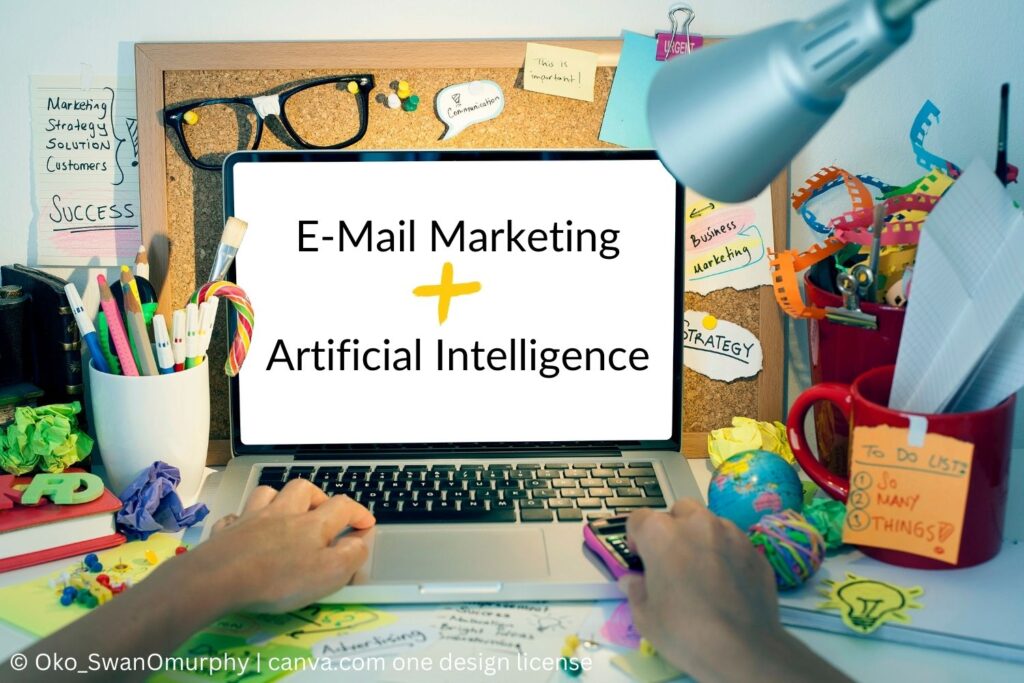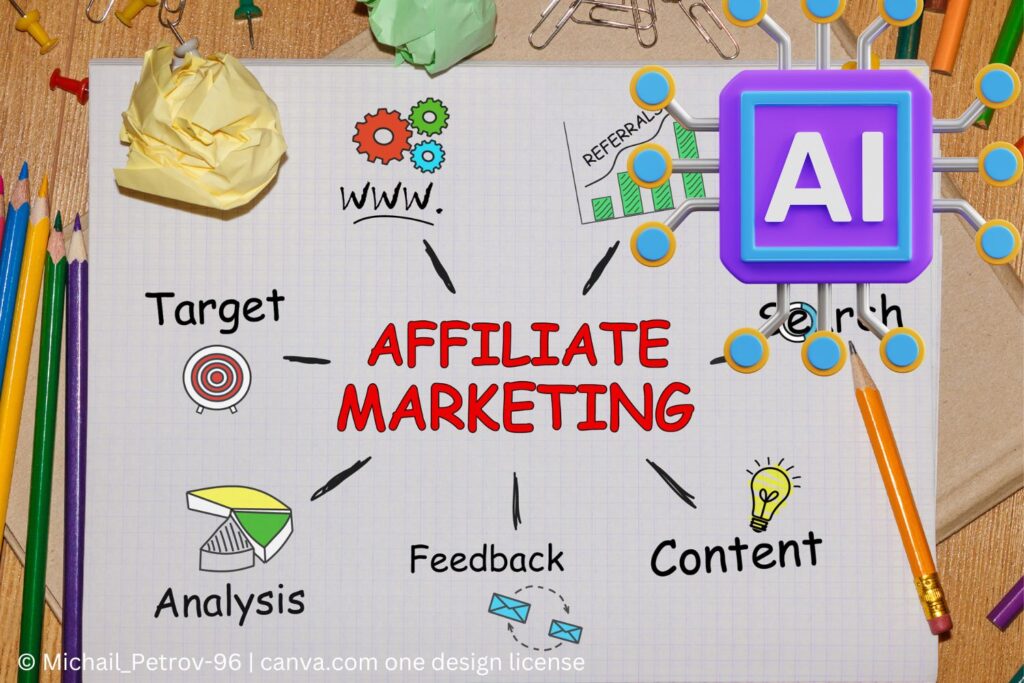Understanding the role of AI in email marketing
Artificial intelligence (AI) has been a game-changer for email marketing. It refers to the ability of machines to learn from data and make decisions based on that learning. When it comes to email marketing, AI can help you gain insights into your audience, optimize your content and timing, and improve your email campaigns’ overall performance.
AI has revolutionized email marketing by providing marketers with the tools they need to create highly personalized and targeted campaigns. With AI, marketers can analyze vast amounts of data to gain insights into their audience’s behavior and preferences. This allows them to create campaigns that are tailored to their audience’s specific needs and interests.
The evolution of email marketing and AI
The early days of email marketing were characterized by simple, one-size-fits-all campaigns. Marketers would send out the same email to their entire list, regardless of their audience’s preferences or behavior. As technology advanced and marketers gained access to more data, they began to personalize their emails and segment their audience based on demographics, behaviors, and interests.
Today, AI is taking personalization to the next level. With AI, marketers can create highly personalized campaigns that are tailored to each individual subscriber. AI algorithms can analyze a subscriber’s behavior, preferences, and interests to create a unique experience for each subscriber.
Key AI technologies used in email marketing
There are several AI technologies that marketers use to enhance their email campaigns. These include machine learning, natural language processing, and predictive analytics.
Machine learning algorithms enable marketers to analyze vast amounts of data and develop insights into how their audience behaves and what they’re likely to respond to. This allows marketers to create highly targeted campaigns that are tailored to each subscriber’s behavior and preferences.
Natural language processing can help optimize email content for readability, tone, and sentiment. This technology can analyze the language used in an email to determine the most effective way to communicate with a subscriber.
Predictive analytics can be used to identify patterns in customer behavior and predict future actions. This technology can analyze past behavior to predict what a subscriber is likely to do in the future, allowing marketers to create campaigns that are highly targeted and effective.
In conclusion, AI has revolutionized email marketing by providing marketers with the tools they need to create highly personalized and targeted campaigns. With AI, marketers can analyze vast amounts of data to gain insights into their audience’s behavior and preferences, allowing them to create campaigns that are tailored to each individual subscriber. As AI technology continues to evolve, we can expect to see even more advanced and effective email marketing campaigns in the future.
Enhancing email personalization with AI
Personalization is key to keeping customers engaged and improving campaign performance. With AI, you can take personalization to the next level.
As businesses continue to rely more on digital communication channels, email marketing has become a critical component of their marketing strategy. However, with the amount of emails that people receive every day, it’s becoming increasingly difficult for businesses to stand out in their customers’ inboxes. Personalization is one way to increase the chances of your emails being opened and read.
Dynamic content and AI-driven recommendations
Dynamic content refers to content that is tailored to individual customers based on their behaviors and interests. With AI, you can create personalized recommendations based on a customer’s past purchases or browsing history. This means that you can send emails that are highly relevant to each individual customer, increasing the chances of them engaging with your content.
For example, if a customer buys a specific product, you can use AI to suggest related products that they’re likely to be interested in. This increases the chances of them buying again and helps you build a relationship with them over time. The more relevant your content is to your customers, the more likely they are to engage with your brand and become repeat customers.
Predictive analytics for personalized messaging
Another way AI can help you personalize your emails is by using predictive analytics. Predictive analytics can help you identify patterns in customer behavior and predict what types of messages they’re likely to respond to. This can help you create highly targeted messaging that resonates with your audience and drives conversions.
For example, if you notice that a customer tends to open emails that include a discount code, you can use AI to send them more emails with discount codes. Or, if a customer tends to engage with emails that include images of a certain product category, you can use AI to send them more emails featuring products in that category.
By using predictive analytics to personalize your messaging, you can increase the chances of your emails being opened and read, and ultimately drive more conversions.
In conclusion, AI can help you take your email personalization to the next level by creating dynamic content and personalized recommendations, as well as using predictive analytics to create highly targeted messaging. By leveraging the power of AI, you can increase engagement with your customers and drive more conversions for your business.
Optimizing email subject lines and content
When it comes to email marketing, first impressions are everything. Your subject line is the first thing customers see, and it can determine whether they open your email or not. But did you know that there are ways to optimize your subject lines and email content to maximize engagement? Let’s take a closer look.
AI-powered subject line generation
One of the latest advancements in email marketing is AI-powered subject line generation. This technology uses machine learning algorithms to analyze what types of subject lines your audience is most likely to respond to. By analyzing trends, past performance, and market research, AI can generate subject lines that are more likely to catch your customer’s attention.
For example, let’s say you run an online clothing store. You might use AI to generate subject lines that include personalized recommendations based on the customer’s browsing history or purchase behavior. Or, if you’re running a limited-time sale, AI can help you create subject lines that create a sense of urgency and encourage customers to act fast.
By using AI-powered subject line generation, you can increase the open rates of your emails and ultimately drive more sales for your business.
Natural language processing for content optimization
Another way to optimize your email marketing is through the use of natural language processing (NLP). NLP is a branch of AI that focuses on analyzing and understanding human language.
With NLP, you can optimize your email content for readability, tone, and sentiment. AI can analyze your text and make suggestions for improvements, such as using simpler language or adjusting the tone to match the customer’s preferences. This can help you create emails that are more engaging and easier for your customers to read.
For example, if you’re sending a promotional email, AI can help you adjust the tone to match the customer’s preferences. If your customer base is more casual, AI can suggest using more conversational language and a friendly tone. On the other hand, if your customer base is more professional, AI can suggest using a more formal tone and language.
By using NLP to optimize your email content, you can create emails that resonate with your customers and ultimately drive more conversions.
Overall, optimizing your email subject lines and content with AI can help you create more engaging and effective email campaigns. By using these advanced technologies, you can improve your open rates, click-through rates, and ultimately drive more sales for your business.
Improving email deliverability and open rates
No matter how great your email content is, if it doesn’t get delivered or opened, it’s all for naught. AI can help you improve your deliverability and open rates by optimizing your sending times and targeting the right audience.
AI-driven send time optimization
AI-driven send time optimization uses machine learning algorithms to analyze your customer’s behavior and identify the best times to send them emails. By sending emails at the optimal time, you can increase the chances of them being opened and engaged with.
Smart segmentation for targeted campaigns
Smart segmentation involves categorizing your audience based on demographics, behaviors, and interests. With AI, you can create segments based on a range of factors, from past purchase history to website behavior. By targeting your campaigns to specific segments, you can create messages that are more relevant and engaging to your audience.
Analyzing and interpreting email marketing data
Finally, AI can help you analyze and interpret the data generated by your email campaigns. By using predictive analytics and other AI technologies, you can gain insights into what’s working and what’s not, and use that information to improve your campaigns over time.
AI-powered analytics for actionable insights
AI-powered analytics can help you identify trends and patterns in your data that might be missed by human analysts. By analyzing vast amounts of data in real-time, AI can help you make informed decisions about your email campaigns and identify areas for improvement.
Sentiment analysis and customer feedback
Sentiment analysis involves analyzing customer feedback and social media mentions to identify trends and patterns in customer sentiment. This can help you identify areas where you’re doing well and areas where you need to improve. By constantly monitoring customer sentiment, you can ensure that your emails are always hitting the right notes with your audience.
Conclusion
Artificial intelligence is transforming the world of email marketing. By harnessing the power of AI technologies such as machine learning, natural language processing, and predictive analytics, marketers can create highly personalized, engaging campaigns that resonate with their customers. Whether you’re looking to optimize your content and timing, improve your deliverability and open rates, or analyze and interpret your data, AI can help you take your email marketing to the next level. So why not give it a try and see how far you can take your email campaigns?


